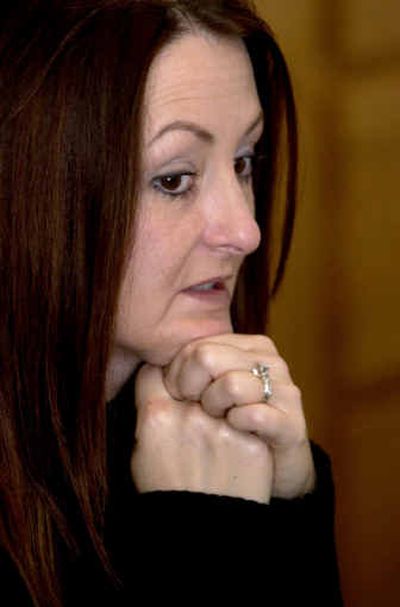Substance abuse frays kids’ safety net

COEUR d’ALENE – Drug abuse has created a generation of children with so many layers of problems that social agencies barely can scratch the surface, and foster and adoptive parents are finding themselves in over their heads.
“We had at least 10 failed adoptions last year,” said Sheilah Stone-Dorame, administrative director at Children’s Village in Coeur d’Alene.
“The average stay here used to be 90 to 120 days. Last year, we had six kids stay more than 16 months. These are not the type of kids we had here when I started.”
Children’s Village shelters children who can’t live at home for any number of reasons – a sick parent, abuse, homelessness.
Stone-Dorame and Tinka Shaffer, village development director, started working at the village about 15 years ago. Most kids then needed safety, nurturing, a warm bed, Shaffer said.
“For the most part, we got families back together,” she said. “Now we don’t want kids going back home. Mom is still using drugs.”
The state Department of Health and Welfare sends many children to the village after they have been separated from drug-using parents. The state pays $10 to $14 per day to the village to care for most of those kids, but that amount no longer covers costs, Shaffer said.
Kids born into drug homes develop mental and emotional problems that require years of counseling and discourage families from adopting them, Stone-Dorame said. They wear out the village staff because they demand constant attention and care strategies the staff hasn’t had to practice in the past.
Children’s Village has two homes. One houses 10 kids who, ideally, should fit into a foster or adoptive family without much adjustment. The other home provides residential care for 10 kids with emotional, mental and behavioral problems serious enough to require professional attention. State agencies in Idaho and Washington send kids to the village’s residential care.
The states pay more for children in the second home. When that home is full, Idaho’s Health and Welfare Department now sends problem kids to the village’s first home, where services are more on the child-care level and cost less, Shaffer said.
Rob Gregory, who manages children and family services for the state’s North Idaho office, said his office has little choice because 80 percent of the children his department encounters now are living in homes with substance abuse.
“The system’s been crashed with this particular problem,” Gregory said. “It may not be meth, but substance abuse is growing. It’s a huge problem for child welfare in general in the nation.”
Gregory said parents on meth are super-productive for a few days, then shut down. They often sleep for 24 hours straight and kids are left to fend for themselves. Those kids often end up at Children’s Village, where they push the staff’s limits by screaming incessantly for attention because that’s the behavior they learned at home.
“We have one little sweetie who screams, ‘The world hates me,’ ” Shaffer said. “The staff is trying to teach her other behavior by giving her little tasks. It’s slow progress.”
Kids stay at the village longer now, taking space from other kids who may need the services. Shaffer said the construction of a third house would help. That would enable the village to offer a third level of care between rehabilitation and shelter, where many in the group from drug families would fit, she said.
But money is a problem. A new house would run about $1 million and the village needs the donations it receives to add to state payments just to cover daily care. Between 9/11 and the tsunami, though, donations are down nationwide to charities. United Parcel Service in Coeur d’Alene saw Children’s Village’s dilemma. UPS employees adopted the village to support with volunteerism two years ago.
This year, UPS is giving the village $25,000 to strengthen its budget.
“It never would have happened if it wasn’t for the employees,” said Mark Bergman, UPS division manager Monday.
The Coeur d’Alene crew regularly visits the village for yard work, maintenance and other volunteer work. Most employees also donate to the village through their paychecks, Bergman said. UPS offers grants for charities its employees support with at least 100 hours a year of volunteer work. Coeur d’Alene’s UPS staff gave 200 hours, Bergman said.
UPS also is awarding $10,000 to the Cystic Fibrosis Foundation in Spokane.
The money for Children’s Village will go to care, counseling and tutoring, Shaffer said. A third house will come later.
“Demand is up. Folks are in crisis with meth use and there’s no extra money to do what we need to do,” she said. “We have to stretch other resources to take care of the kids. UPS is wonderful.”